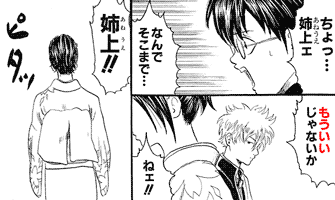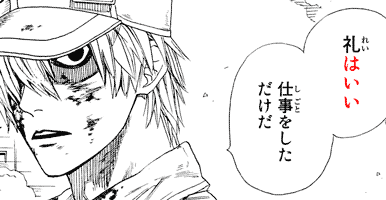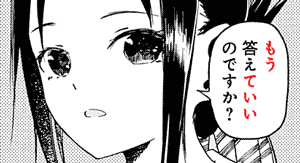In Japanese, mou ii もういい means literally "[it's] good/fine/alright/okay now/already," and it's used in a few of peculiar ways, like to say "I don't need that anymore," "forget it," "you've done enough," or "can I do that now."
This happens because both the adverb mou もう and the i-adjective ii いい can be used in a few peculiar ways.
"I Don't Need It Anymore"
The phrase mou ii もういい is often used to say "I don't need it anymore." Literally, such phrase would be said as:
- mou iranai
もう要らない
[I] don't need [that].- iru 要る
To need.
- iru 要る
However, mou ii has the adjective ii, "good," instead of the verb "to need." So what we're saying is closer to:
- mou juubun
もう十分
Already sufficient. Already enough. - mou kekkou
もう結構
Already fine. Already sufficient. - mou mondai nai
もう問題ない
There's no problem now.- Everything's already been fixed.
Indeed, the meaning of mou ii もういい in this usage is "it's fine now." Since it's fine now, there's nothing to be done anymore. Whatever problem was there is no longer there.
- mou ii
もういい
It's fine now.- I got it covered.
- I don't need help with it anymore
- I don't need it anymore.
それはもういい
The phrase sore wa mou ii それはもういい meaning literally "that's good now" is a common way this usage is found. In this case, sore それ, "that," refers to whatever the listener mentioned previously. The speaker is saying "that," which the listener mentioned, "is fine now."
You'll see that -wa ii ~はいい commonly means "fine" in this "unneeded" sense, regardless of whether there's a mou around or not. That's because in such cases the wa は particle has a contrastive function: "this is fine (implying something else mayn't be, but this is.)"
- Context: the Red Blood Cell thanked the White Blood Cell for his hard work. The White Blood Cell responds:
- rei wa ii
礼はいい
"Expressing gratitude is good." (literally.)- Which means:
- Thanking is unnecessary.
- rei wa iranai 礼は要らない
[I] don't need [your] thanks.
- shigoto wo shita dake da
仕事をしただけだ
[I] only did [my] job.- He's saying he doesn't need to be thanked for just doing what he was supposed to do anyway.
もういいって
The phrase mou ii tte もういいって is literally the speaker quoting mou ii with the quoting particle tte. This can mean two things, but it often means the first one:
- "I already said I don't need it." This is used when you say mou ii to declare you don't need something, but the other person insists, so you quote yourself: I already said mou ii, I already said I don't need that.
- "They said they don't need it." Since mou ii has no explicit personal pronoun, it isn't necessarily you that don't need it, you could be quoting someone else, when someone says that don't need something anymore.
The second one can also happen when the listener says mou ii and the speaker is quoting the listener.
- sore wa mou ii
それはもういい
[I don't need that anymore. It's fine.] - mou ii tte... dou iu imi?!
もういいって・・・どういう意味?!
"[you don't need it anymore]"... [what do you mean by that]?!- dou iu imi
どう言う意味
Meaning [that you] call how? (literally.)
How'd you call the meaning.
How'd describe the meaning.
Describe the meaning.
Explain the meaning of this.
What's the meaning of this?
What does this mean?
- dou iu imi
Note that you may see mou ii followed by a bunch of other stuff that basically don't change the meaning of the phrase at all, like:
- mou ii ka
もういいか- Doubt particle.
- I guess it's mou ii.
- I guess I don't need that anymore.
- Is it mou ii?
- mou ii yo
もういいよ- Assertive particle.
- I'm telling you it's mou ii.
- mou ii-n-da
もういいんだ- Contraction of:
- mou ii no da もういいのだ
- It's affirmative that it's mou ii, just in case you had any doubts before.
"I've Had Enough!"
Sometimes, this mou ii もういい can be used in the sense of "I don't need it anymore because I've had enough." That is, when someone is fed up with something, they give up on whatever they wanted before. They don't care anymore.
- mou ii, watashi kaerimasu
もういい 私帰ります
It's fine now, I'm returning.- I've had enough, I'm going home.
- Forget it, I'm going back.
- Never mind that, I'm outta here.
"You've Done Enough."
Sometimes, mou ii もういい is used to tell someone they've done enough about something, and that they can stop and go rest or something. This looks similar to the above, but it's actually different.
Previously, ii いい, "good," meant "fine" in the sense we didn't need to do anything about it. In this case, ii いい means "good" in the sense that it was bad before and, after the listeners efforts, it's now become good, so they don't need to put any more effort.
- cho'... aneuee
ちょっ・・・姉上ェ
Wai... sister.- chotto
ちょっと
[Wait] a bit.
- chotto
- nande soko made...
なんでそこまで・・・
Why [do you go so far].- Why would you do so much?
- mou ii janai ka, nee!!
もういいじゃないか ねェ!!
It's [enough] already, isn't it? Right?!! - aneue!!
姉上!!
Sister!!
"Can I Do it Now?"
Sometimes, mou ii もういい is used to ask if it's "already," mou もう, "alright," ii いい to do something.
Although this could happen with just the phrase mou ii, it's more common when you have a verb in te-form in the middle: mou____te ii もう◯◯ていい.
- mou kotaete ii no desu ka?
もう答えていいのですか?
Is it okay [for me] to answer already?- May I answer already?
- Can I answer now?
Further Reading
See Also
- maa ii まぁいい
Whatever.



No comments: